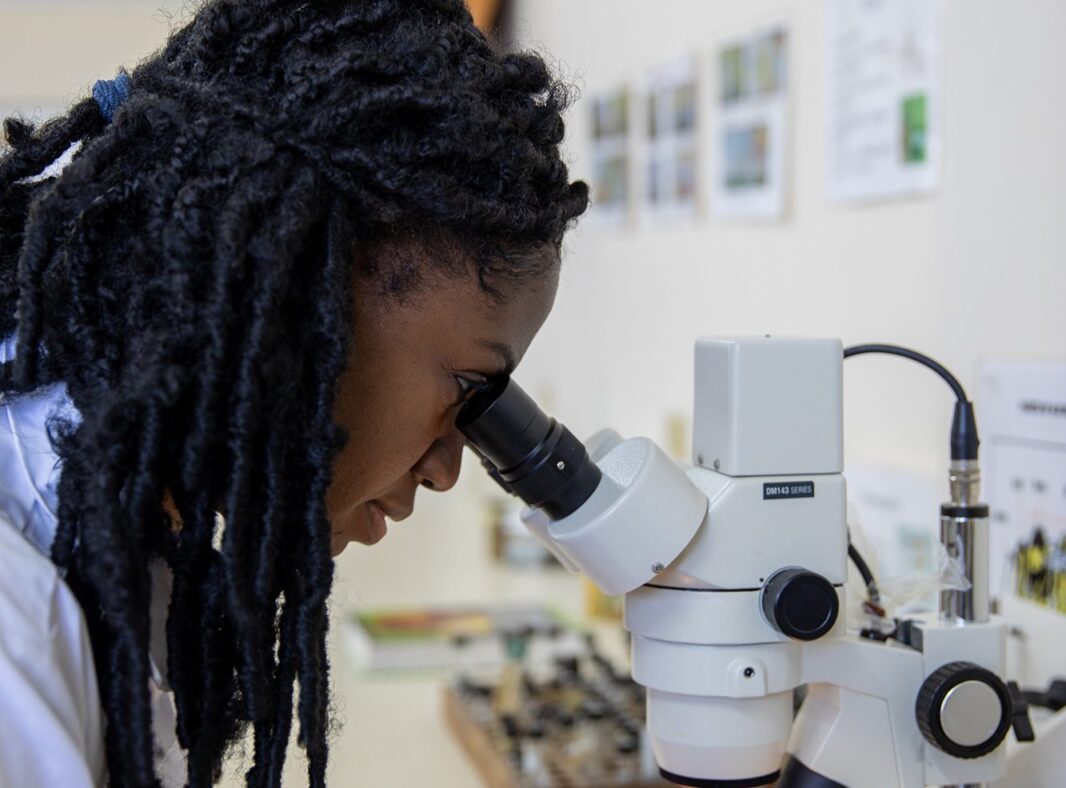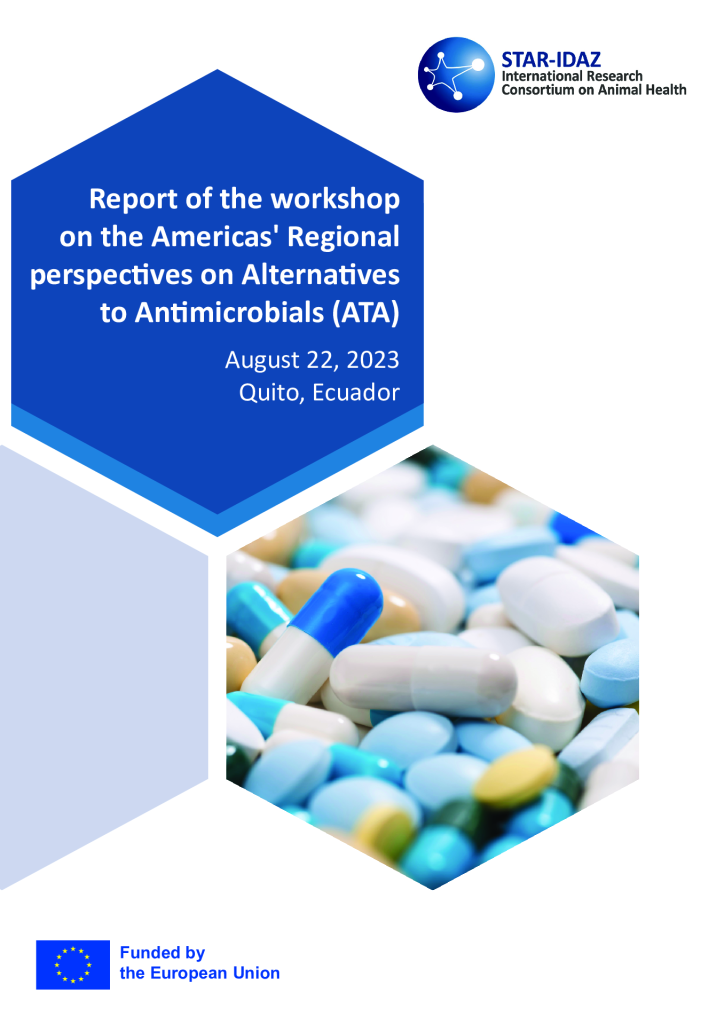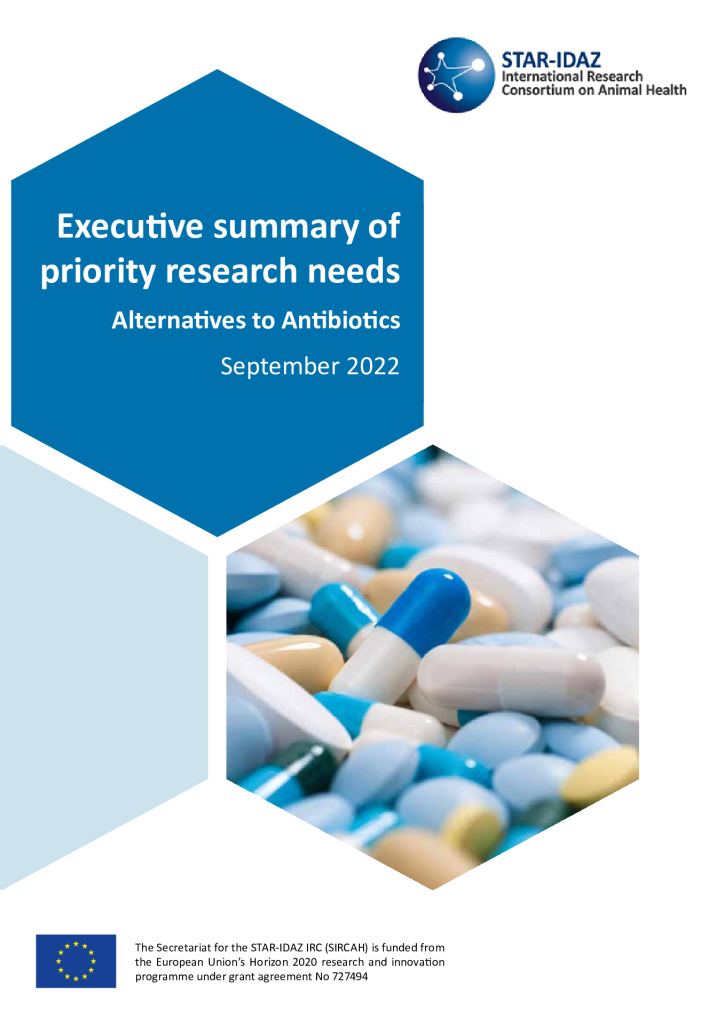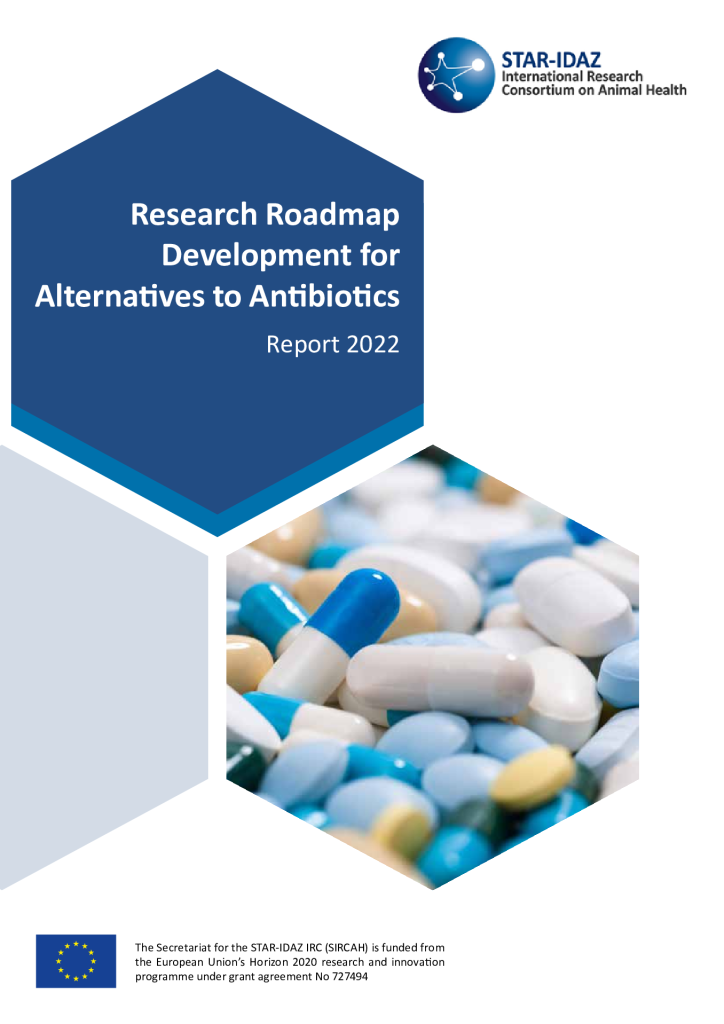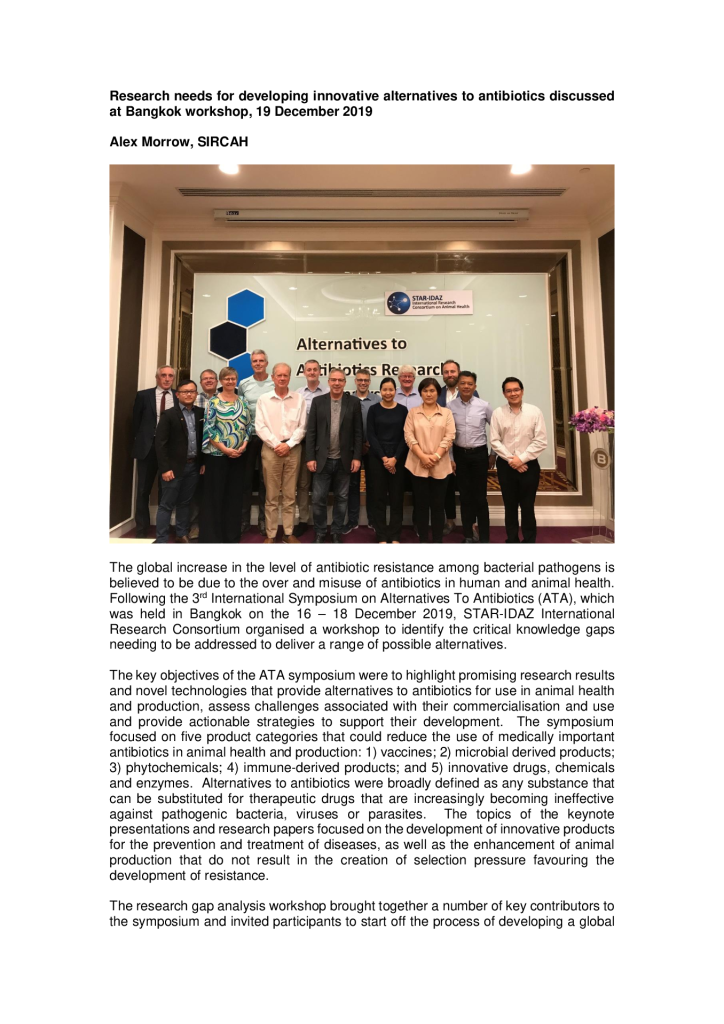STAR IDAZ Approach
STAR-IDAZ partners recognise antimicrobial resistance (AMR) as a priority area for collaborative action. Given the broad and complex nature of AMR and to avoid duplication with other existing initiatives on the subject, it was decided to focus efforts on the development of Alternatives to Antimicrobials (ATA). Alternatives to antimicrobials are crucial in combating antimicrobial resistance for the benefit of both animal health and One Health and Research and Development (R&D) is critical to advance these alternatives.
To enhance global collaboration in the identification of research gaps, overlaps and potential for cross-sectoral collaboration, STAR-IDAZ organised several activities and partnered with the Global AMR R&D Hub [https://globalamrhub.org/], optimising information sharing that can support the more efficient use of international resources.
Information
- WOAH AMR Webpage
- Global AMR R&D Hub
-
Global Leaders Group on Antimicrobial Resistance
GLG recommendations to address the antibiotic pipeline and access crisis in human health
Working group
STAR-IDAZ Working Group
Since 2019, several workshops involving international experts were held to identify research gaps and develop research roadmaps on Alternatives to Antimicrobials to fight antimicrobial resistance. The first workshop in December 2019 in Bangkok focused on the identification of key areas for research. In October and November 2021, STAR IDAZ IRC and IDRC organised five ATA workshops to develop research roadmaps on the identified areas and discuss marketability. Results were shared with STAR-IDAZ partners and beyond to focus research where most needed and speed up the development of ATA.
Key People

Adrian Smith,
University of Oxford United Kingdom
Alberto Danielli,
University of Bologna Italy
Anastasia Vlasova,
Ohio State University United States
Armando Heriazon,
International Development Research Centre Canada
Brian Oakley ,
Western University of Health Sciences United States
Bruce Seal,
Oregon State University United States
Carmen Torres Manrique,
University of La Rioja Spain
Carola Venturini,
University of Sydney Australia
Chengbo Yang,
University of Manitoba Canada
Crystal Loving,
United States Department of Agriculture United States
Cyril Gay ,
United States Department of Agriculture United States
Denis Kolbasov,
TBD Russia

Dirk Werling,
Royal Veterinary College United Kingdom
Doug Korver,
University of Alberta Canada
Elisabeth Erlacher-Vindel,
Office International des Epizooties Argentina
Eric Cox,
University of Ghent Belgium
Fayna Diaz Sen-Segundo,
United States Department of Agriculture United States

Hein Tun Min,
HKU School of Public Health Hong Kong
Henk Haagsman,
University of Utrecht Netherlands
Jaap Wagenaar,
University of Utrecht Netherlands
Jeffery Watts,
Zoetis United States
John Prescott,
University of Guelph Canada
Joshua Amimo,
University of Nairobi Kenya
Kim Cook,
United States Department of Agriculture United States
Laila Ben Said,
Laval University Canada
Luca Guardabassi,
University of Copenhagen Denmark
Mariano Fernandez-Miyakawa,
National Agricultural Technology Institute Argentina

Martha Clokie,
University of Leicester United Kingdom
Mary Gordoncillo,
FAO Regional Office for Asia and the Pacific Thailand
Michela Gambino,
Royal Danish Academy Denmark
Natrah Ikhsan,
Universiti Putra Malaysia Malaysia
Paolo Trevisi,
University of Bologna Italy
Patrick Butaye,
Ross University School of Veterinary Medicine St. Kitts and Nevis

Paul Barrow,
University of Surrey United Kingdom
Peter Heegaard,
Technical University of Denmark Denmark
Poul Baekbo,
SEGES Innovation Denmark
Kevin Tiessen,
International Development Research Centre Canada
Kim Agle,
TBD Argentina
Leslie Ogilvie,
Global AMR R&D Hub Germany
Mattia Pirolo,
University of Copenhagen Denmark
Nisha Dixit Huidobro,
TBD Argentina
Reports
Reports and outcomes from meetings and workshops
Research roadmaps
Gap analysis summary
Research roadmaps on Alternative to antimicrobials have been developed and published highlighting research gaps on the role of the microbiome and how it can be influenced, the development of immunomodulators and phage technologies. An executive summary is available for consultation. These roadmaps are linked with other ATA roadmaps for vaccine development and disease controls, including biosecurity and vaccination strategies.
Projects
Displaying 4 of 26 projects
VIEW ALL PROJECTSExploring the Immunomodulatory Potential of Pectins and Polysaccharides as Feed Additives for Poultry: In Vitro Insights and Gut Model Development
Planned Completion date 07/03/2024
![]() Netherlands
Netherlands
Advanced porous materials for antimicrobial treatment
Planned Completion date 31/10/2023
![]() Netherlands
Netherlands
outer membrane vesicles protect gram negative bacteria against host defense peptides
Planned Completion date 25/08/2021
![]() Netherlands
Netherlands


